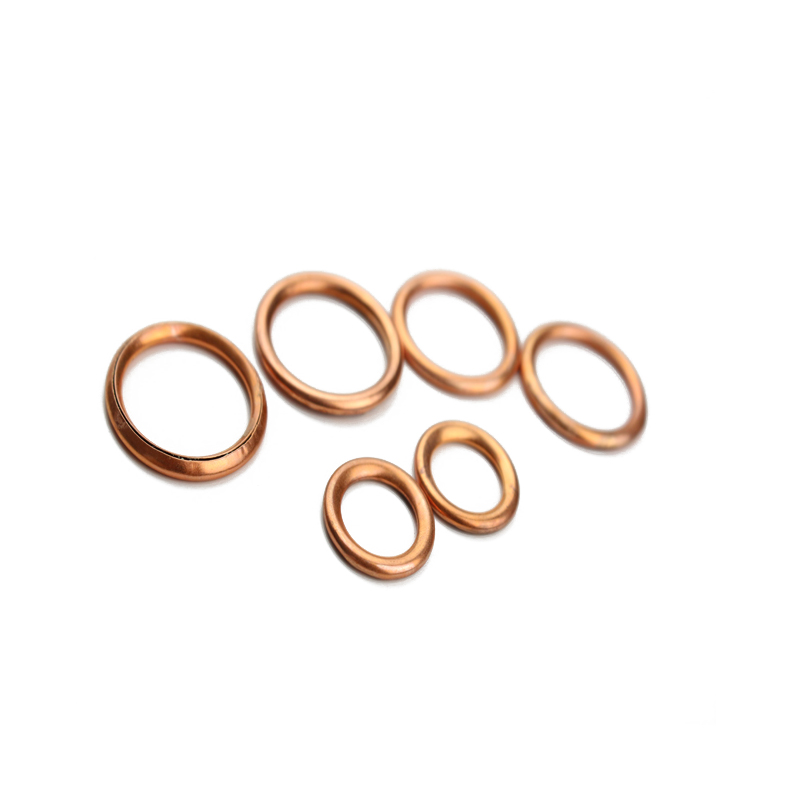oil drain bolt washer
Understanding the Importance of Oil Drain Bolt Washers
Oil drain bolt washers may seem like a small and insignificant component in the vast world of automotive maintenance, but their role is crucial to the functionality and longevity of the engine. These washers are used in conjunction with the oil drain bolt to ensure a secure seal, preventing oil leaks that could lead to severe engine damage. In this article, we will explore the importance of oil drain bolt washers, the different types available, and tips for maintenance.
The Role of Oil Drain Bolt Washers
Oil drain bolt washers serve as a sealing element between the oil drain bolt and the engine's oil pan. When the oil drain bolt is tightened, the washer compresses, creating a tight seal that prevents oil from leaking. Any failure in this sealing ability can result in oil seepage, which not only leads to messy oil spots on your garage floor but can also compromise the engine's oil level, leading to inadequate lubrication and potential engine failure.
Types of Oil Drain Bolt Washers
Oil drain bolt washers come in various materials to suit different applications
. Here are the most common types1. Copper Washers These are often favored for their excellent sealing capabilities and high-temperature resistance. Copper washers can be reused several times, making them a popular choice among mechanics and DIY enthusiasts alike.
2. Aluminum Washers Lighter than copper and often used in various automotive applications, aluminum washers provide a good seal and are corrosion-resistant. However, they can deform over time and may need to be replaced more frequently than their copper counterparts.
oil drain bolt washer

3. Fiber Washers Made from a composite material, fiber washers are typically used in lighter applications and are not as common in automotive settings. They can provide a good seal but may not withstand high temperatures as effectively as metal washers.
4. Rubber Washers Offering flexibility, rubber washers can be an excellent choice for certain applications. However, their performance can deteriorate under high temperatures, making them less suitable for engine oil applications.
5. Plastic Washers Although not as common in high-stress environments, plastic washers can be used in select applications where corrosion resistance is critical.
Importance of Regular Maintenance
While oil drain bolt washers are small components, they are crucial for vehicle maintenance. During an oil change, it's wise to inspect the condition of the washer. If you notice any signs of wear, deformation, or corrosion, it is best to replace it with a new one. Using a damaged or worn washer increases the risk of leaks, which can lead to greater problems down the road.
When reinstalling the oil drain bolt, it is essential to apply the correct torque specifications. Over-tightening can deform the washer, compromising its sealing ability, while under-tightening may lead to leaks. Each vehicle may have specific torque settings, so refer to your owner's manual or service guide.
Conclusion
In summary, while oil drain bolt washers might not be the star of the automotive world, their significance cannot be overlooked. They play a vital role in preventing oil leaks and ensuring that the engine operates smoothly. By understanding the different types of washers available and practicing good maintenance habits, vehicle owners can protect their engines, promote longevity, and avoid costly repairs. Whether you’re a seasoned mechanic or a novice car owner, don’t underestimate the value of a simple washer—after all, a tiny component can make a monumental difference in engine performance and reliability. Remember to always check the condition of your oil drain bolt washer during oil changes, and invest in quality replacements when needed. Your engine will thank you for it.
-
Understanding Automotive Oil Seals: Essential Components for Engine and Shaft Protection
News Jul.30,2025
-
The Importance of Heavy Duty Seals in Industrial and Residential Applications
News Jul.30,2025
-
Exploring Industrial Oil Seals: From Felt Oil Seals to TTO and CFW Solutions
News Jul.30,2025
-
Essential Guide to Oil Seals: From Radial to Metal-Cased Seals for Industrial Reliability
News Jul.30,2025
-
Choosing the Right Oil Seals and Gaskets for Industrial and Automotive Applications
News Jul.30,2025
-
Cassette Seals: Durable Sealing Solutions for Harsh Environments
News Jul.30,2025
-
Understanding the Front Main Engine Seal: Purpose, Maintenance, and Installation
News Jul.29,2025
Products categories















